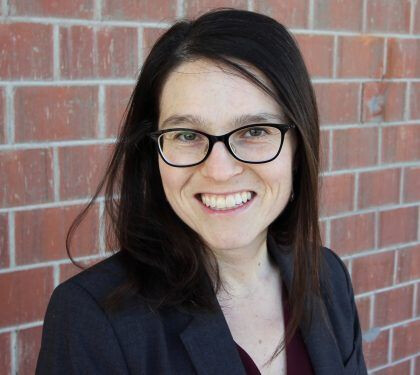A Chapter in My Land Tenure Story
Aside from an unruly, neglected vegetable garden, I don’t farm anymore, but a decade ago, it was all I wanted to do.
After a full-time apprenticeship on a small-scale, diversified vegetable farm, my partner at the time and I were ready to strike out on our own. We didn’t have the capital to buy land, so we turned to our state’s land linking program to match us with a landowner who wanted to share their acreage.
We matched with a young family on 60 acres of rural land. They wanted to see it farmed, but they lacked the skills and capacity to do it themselves. They invited us to move onto the property and help convert their degraded pasture into a vegetable operation. We worked out a loose agreement: we could live there for free, in exchange for our sweat equity. They would pay for major infrastructure investments; we would pay for everything else.
The year that followed was a whirlwind. We built a yurt to live in, then greenhouses, and a fence to keep the elk at bay. We designed an irrigation system. We planted fruit trees, asparagus, and berries. We bought piglets, and then lambs. We shoveled load, after load, after load, of compost. To pay the bills, I worked part-time at a neighboring farm. We were dirty, exhausted, and exhilarated. We were doing it.
At the end of the year, just as we were putting in our seed orders for the following season, our land partners sat us down. They had decided to get a divorce, and our arrangement wasn’t going to work anymore. They asked us to move on.
I now understand there was a lot we could have done to prevent the heartbreak that ensued (a written lease agreement would have been a great start, for instance). But if not for my lived experience of unstable and insecure land tenure, I might not be where I am today.
Helping Others Avoid My Mistakes
Early next year, my team at AFT will kick-off our Pacific Northwest Farmland for the Next Generation training for a cohort of agricultural service providers in Washington State. The training is designed to help agricultural service providers better support beginning farmers in their land access journeys. The 8-part series will cover systemic barriers to land access, financial readiness, finding and assessing land, leasing and purchasing land, and non-traditional land access strategies. The course will also cover skill areas including active listening and coaching and working across cultural and linguistic differences.
My team recognizes that farmers and ranchers who identify as Black, Indigenous, and/or People of Color (BIPOC), as well as producers from other marginalized groups, face systemic and institutional barriers to accessing land. Participants in the training will examine those barriers, reflect on how white privilege and power dynamics can manifest in a technical assistance relationship, and explore ways to specifically support BIPOC, immigrant, refugee, and LGBTQ+ producers in navigating challenges to land access.
What do We Actually Mean When We Talk about Land Tenure?
Over 60 service providers applied to participate in the AFT training. In the application, we asked, “What does secure affordable land tenure mean to you?” Many of their answers resonated with me deeply. For instance, applicants shared,
“Secure land tenure means access to land for a farmer for as long as they intend to farm.”
“Affordable, long term, safe, equitable access to land.”
“Secure land access is the linchpin for community food security.”
“It allows for the transmission of and support for cultural practices to the larger community and the ability to convey wealth and knowledge to future generations.”
“Secure land tenure means the land’s caretaker can focus on stewardship and cultivation in collaboration with community and land.”
And lastly,
“Secure land tenure means a guaranteed sense of place.”
It’s About Connection
At AFT, we often talk about the need for education and technical assistance to address the tangible, quantifiable parts of land tenure: finding land, whether to lease or purchase, how to access capital. All are undeniably essential. Yet when I reflect on what motivated me as an aspiring farmer 10 years ago, and what was so difficult about the loss of the project into which I had invested so much of myself, it was about something much more abstract: the desire for connection with land and connection to place.
For me, secure land tenure – and the reason our Pacific Northwest Farmland for the Next Generation training is so important to me – means the ability to build and nourish and evolve a long-term relationship to a place, its ecosystems, its stories, its dirt.
This material is based upon work that is supported by the National Institute of Food and Agriculture, U.S. Department of Agriculture, under award number G120-21-W7903 through the Western Sustainable Agriculture Research and Education program under project number WPDP20-002. USDA is an equal opportunity employer and service provider. Any opinions, findings, conclusions, or recommendations expressed in this publication are those of the author(s) and do not necessarily reflect the view of the U.S. Department of Agriculture.




